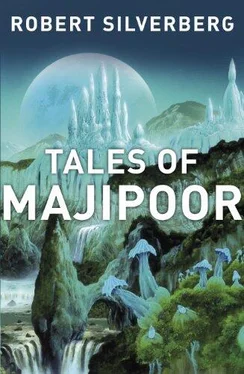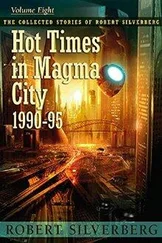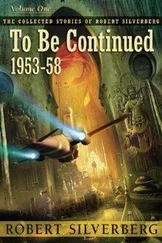Robert Silverberg - The Way They Wove the Spells in Sippulgar
Здесь есть возможность читать онлайн «Robert Silverberg - The Way They Wove the Spells in Sippulgar» весь текст электронной книги совершенно бесплатно (целиком полную версию без сокращений). В некоторых случаях можно слушать аудио, скачать через торрент в формате fb2 и присутствует краткое содержание. Год выпуска: 2013, ISBN: 2013, Издательство: Gollancz, Жанр: Фэнтези, на английском языке. Описание произведения, (предисловие) а так же отзывы посетителей доступны на портале библиотеки ЛибКат.
- Название:The Way They Wove the Spells in Sippulgar
- Автор:
- Издательство:Gollancz
- Жанр:
- Год:2013
- ISBN:978-0-575-13006-7
- Рейтинг книги:5 / 5. Голосов: 1
-
Избранное:Добавить в избранное
- Отзывы:
-
Ваша оценка:
- 100
- 1
- 2
- 3
- 4
- 5
The Way They Wove the Spells in Sippulgar: краткое содержание, описание и аннотация
Предлагаем к чтению аннотацию, описание, краткое содержание или предисловие (зависит от того, что написал сам автор книги «The Way They Wove the Spells in Sippulgar»). Если вы не нашли необходимую информацию о книге — напишите в комментариях, мы постараемся отыскать её.
The Way They Wove the Spells in Sippulgar — читать онлайн бесплатно полную книгу (весь текст) целиком
Ниже представлен текст книги, разбитый по страницам. Система сохранения места последней прочитанной страницы, позволяет с удобством читать онлайн бесплатно книгу «The Way They Wove the Spells in Sippulgar», без необходимости каждый раз заново искать на чём Вы остановились. Поставьте закладку, и сможете в любой момент перейти на страницу, на которой закончили чтение.
Интервал:
Закладка:
“Ah,” he said again. “Of course.”
And he told me. There are, he explained, three classes of demons. That was the word he used, demons, and what he meant by it was the inhabitants of the invisible world, a concept that seemed not to have any fantastical connotations for him: he accepted without the least hint of skepticism the presence of unknown and unknowable worlds immediately adjacent to our own. These demons were the original prehistoric inhabitants of our planet, before even the Shapeshifters had come here. In ancient times the Shapeshifters had mastered them, though, confining them under powerful spells. The valisteroi, he said, were a group that had somehow escaped those spells and live now beyond the sphere of the sun, invulnerable to all conjuring. The kallisteroi, who dwell between the sky and the Great Moon and have a certain degree of freedom of action, are sympathetic to us and will sometimes agree to do services for us when properly asked by the adept; in any case they never do harm. And then there are the irgalisteroi, the demons of the subterranean world, who can be compelled to perform many duties, but who are angry, dangerous beings entirely capable of turning on an unskillful summoner and destroying him.
It says much for the spiritual force that lay behind this saintly man’s mild demeanor and the incantatory power of his gentle voice that I was able to accept as factual data, for the moment, all that he was telling me about these various categories of nonexistent phantoms. As he spoke I went leaping ahead of him to the conclusion that Ambithorn and Flurivole, perhaps as a drunken irresponsible prank or possibly with the wild hope of discovering that the irgalisteroi actually were real and could be commanded to heap them with riches, had incautiously brought some potent demon out of the land of the invisible, using a borrowed spell, but had not been able to control it. Not only didn’t I doubt his belief in such entities, I think I felt, just for the moment, under the irresistible strength of his incandescent sincerity, some belief in them myself.
“I can give you a glimpse of them,” he said. “I would prefer not to meddle with Remmer or Proiarchis myself, though if I brought them here they might confirm what I have told you of your brother-in-law’s end. But I can call up for you some of the less dangerous spirits, if you are curious about such things: Minim, say, who restores lost knowledge, or Ruhid, who brings relief from fever. Theddim, if you wish, who can control the coursing of the blood through our hearts—”
He mentioned several more, each with some highly specialized function. All those imaginary creatures! Such madness to believe in their existence! And yet I could not really scoff. Despite myself I was impressed by how much ingenuity had gone into devising and naming them. And part of me, just a part, began to wonder just how imaginary they actually were. That shook me more than I know how to tell: that I could even begin, for the moment, to believe.
“Thank you, no, father,” I said hoarsely. “I’m not ready, I think, for such sights.” And I could not tell, just then, whether I was refusing the demonstration to avoid embarrassing the good man when his nonsense failed to produce results, or out of fear that his spells and gestures just might present me with a vision of Minim or Ruhid or Theddim right there in the room before my scornful unbelieving eyes.
That Macola Endrago might be responsible for the deaths of Melithorn and Flurivole in some disagreement over wages now seemed inconceivable to me. Whatever disputes between the three men Melithorn’s journal alluded to could much better be accounted for by the fact that Endrago actually believed in the tenets of the Temple of Eternal Comfort, whatever those might be, while his two employers had regarded the chapel merely as a money-making enterprise. Endrago’s mere presence there each day would have been a constant silent reproach to them, and they might well at last have let him know in some blunt and mocking way that they had nothing but contempt for his unworldly faith in the creed that they had pasted together out of bits and scraps of other religions. But could that have led him to murder them? No, never. If a murderous impulse lurked anywhere in Macola Endrago’s soul, then I am no judge of men.
Which left me nothing to fall back on, then, but the conjecture offered to me by the sexton Graimon Sten that a disgruntled worshipper had killed them, and not even the sexton seemed to take that idea very seriously. Of course there was also the death-at-the-hands-of-angry-demons hypothesis, but of course that was not an idea I was capable of embracing. Endrago apparently was the only witness to that event, and even he had come upon the scene after the demons had done their work. I doubted that he had fashioned the tale out of whole cloth. But a man who can believe in invisible demons in the first place is likely to believe in other theories as well that men of my sort are unable to accept.
My longing to quit this place and return to Thuwayne was all but overwhelming by now. But I knew I could not give up at this point, for I felt a strange certainty that I would have the answer I sought before much longer. So each day I continued to go, toward the middle of the afternoon, to the Temple of Eternal Comfort. There was always a handful of worshippers there, kneeling on the bare floor, eyes closed, deep in meditation. I imitated them. From time to time a deacon in a white robe trimmed with scarlet would appear and ring a little bell, and the congregation would rise and sing a hymn, and participate in a sort of contrapuntal ritual chant, and incense would be burned and mysterious lights would glow in the corners of the long room, and sometimes misty, shimmering apparitions would briefly make themselves visible. At the climax of the ceremony Macola Endrago would emerge from a back room and deliver a brief, sweet sermon, counselling us to let the troubles of the world slide from our shoulders like water, and calling upon this spirit or that one to aid us in that task, and one by one we would approach the altar beside him and drink from a common vessel containing a thick, almost viscous wine.
It all was a bit of a strain on my patience; but I did come every day, I knelt and rose and pretended to chant the chants, and listened to Endrago’s sermon and I drank from the cup of communion, and I must say that I would leave the chapel feeling released from the ordinary tensions of the moment. And each day I waited for Jaakon Gameel—that was the name of the man who, so rumor had it, had been responsible for the disappearance of the two founders—to make an appearance at the chapel. Graimon Sten had promised to point him out to me. But four days passed, and five, and six, and I told myself that a murderer never does return to the scene of the crime, whatever the popular belief may be.
Then in the second week of my vigil someone I had not seen before was present in the chapel when I arrived, and Graimon Sten, passing close beside me, murmured, “That’s the one.”
A great sadness came over me at that. For I am, I do maintain, a capable judge of men; and, I thought, if the plump, placid dumpling of a man who was Jaakon Gameel could have been responsible for the deaths of Melifont Ambithorn and Nikkon Flurivole, then I will be the next Coronal of Majipoor.
I studied him carefully. The people of Sippulgar are generally lean and bony, but this one was round-faced, fat-cheeked, a stubby cabbagy blob of a man with a mild, innocent face. Plainly he was a true believer in the teachings of his faith. When he knelt in prayer he passionately pressed his forehead hard against the floor. Sometimes I heard him sobbing. When the time came to chant, he chanted with a sort of desperate fervor. When Endrago delivered his sermon he responded to each familiar point with a short, sharp nod, like one who has been struck by unarguable revelation. When we went up to the altar for the cup of communion, he held it with both hands and drank deeply. After the ceremony he sat for a long while, as though stunned, and eventually left without a word to anybody.
Читать дальшеИнтервал:
Закладка:
Похожие книги на «The Way They Wove the Spells in Sippulgar»
Представляем Вашему вниманию похожие книги на «The Way They Wove the Spells in Sippulgar» списком для выбора. Мы отобрали схожую по названию и смыслу литературу в надежде предоставить читателям больше вариантов отыскать новые, интересные, ещё непрочитанные произведения.
Обсуждение, отзывы о книге «The Way They Wove the Spells in Sippulgar» и просто собственные мнения читателей. Оставьте ваши комментарии, напишите, что Вы думаете о произведении, его смысле или главных героях. Укажите что конкретно понравилось, а что нет, и почему Вы так считаете.












